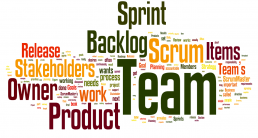App Business Guide: How to Get Started?
The average smartphone user spends at least 2.3 hours a day on their smartphones, and 80 to 90 percent of this time is spent using mobile apps. Just open any app store, and you’ll see how there are mobile apps for almost anything you can imagine—from productivity and utilization apps to games.
Users download an average of 8.8 apps per month, and the numbers keep increasing. In fact, the number of app store downloads increased by 15% from 2015 to 2016. Statista projects that by 2021, there will be a total of approximately 352.9 billion app downloads.
Revenue from mobile apps also increased by 40% from 2015 to 2016. It’s also forecasted that by 2020, mobile apps will generate approximately 188.9 billion U.S. dollars in revenues via app stores and in-app advertising.
As such, businesses have adopted mobile app marketing strategies to keep up with the trend and take their own share of the market.
In this comprehensive guide, you will learn how to start your own mobile app—from business planning to building and launching your new mobile app.
Phase 1: Planning
1. Decide What to Build
So, you’ve decided to build an app. But, what app do you want to build?
It’s important to determine the specific goals and functions of your app before you even start getting into the nitty-gritty of mobile app development. After all, no business venture will ever be successful without clear goals and objectives.
First, ask yourself the following questions:
- Who is my target market and what is my buyer persona? This will help you center the functions and features of your app towards what your ideal customer needs and wants.
- Why are you building a mobile app? Knowing why you’re investing in a mobile app will help you determine your overall vision. Before you answer the different “whats,” ask yourself first the most important question of “why.”
- What are the goals of my mobile app? Whether it’s to provide a more convenient channel where your customers can reach you, to increase your website traffic, or to generate more leads, you need to be sure of the objectives that your mobile app would achieve both for the users and for your business.
- What problems do I want this mobile app to address? Chances are, you saw a need or a problem that you want to solve through a mobile app. By knowing the problems you want to address, you can properly determine the functions and features to include in your app.
- How does this mobile app tie into my overall business goals and strategy? There are many business goals a mobile app can help you achieve such as brand awareness, customer engagement and loyalty, and increased revenue. You should know which business goal your mobile app wants to achieve so you would know how to measure its performance.
- Who are my competitors? Do your research and look around the major app stores if there’s already an existing app that provides similar functions as yours. This will help you find your edge and set yourself apart from the competition.
Having all this information written down or documented will help you present your idea to potential stakeholders or partners. Create a sketch of your idea to help you visualize the mobile app that you want.
Once you have the answers to the above questions, you can then decide whether you want to build an app for Android or iOS or both. Building an app for Android and iOS simultaneously can be costly and risky, especially because you are still clueless about how the audience will receive your mobile app. Go back to your target audience to know which device they likely use to determine which platform to prioritize for your mobile app.
2. Have a Business Plan
Diving in head-first without a clear-cut business plan would be unwise. Have a business plan to help you align your founding team around shared goals and even help you raise funding later on. A solid business plan will also allow you to prepare for risks and threats, and prevent future problems.
Your business plan should include all the pertinent information about your mobile app such as the current and projected trends, budget, monetization, operations, promotion, and more. Writing a business plan is a tedious task, but it’s essential to launching a successful business.
Here are the core parts of a formal business plan:
Executive Summary
Chapter I. The Problem
- Statement of the Problem
- Solution
- Unique Value Proposition
- Objectives
Chapter II. The Company
- Company Overview
- Products and Services
- Mission-Vision
- Company History
- The Team: Roles and Responsibilities
Chapter III. The Market
- Target Market
- Market Size
- Market Trends and Projections
- Competitors
- SWOT Analysis (Strength, Weaknesses, Opportunities, and Threats)
Chapter IV. The Marketing Strategy
- Customer Acquisition Strategy
- Promotions and Publicity
- Advertising Strategy
- Key Metrics
Chapter V. Financial Plan
- Monetization Strategy
- Startup Costs
- Funding Required
- Financial Projections
3. Plan Your Funding Strategy
Once you have your business plan completed, it’s time to plan your funding strategy. Building a mobile app can be costly, so it’s important to have the funds ready to avoid unnecessary delays. Here are some funding strategies you can consider.
- Get a silent business partner. A silent business partner doesn’t have anything to do with day-to-day business operations, but they will support your project by providing capital. Make sure that your chosen business partner can deliver on their promise and shoulder the necessary project expenses.
- Team up with your colleagues or peers. When you come up with a brilliant idea for a mobile app, you’ve most likely discussed it with some of your peers. Ask them if they’d be willing to pitch in their own expertise and knowledge to make it even more profitable. Chances are, they’d see how your mobile app can generate revenue in the future, and be willing to invest their money and time in your startup mobile
- Look for angel investors. Angel investors are affluent businessmen or organizations who are looking to invest their money in brilliant, new ideas in exchange for partial ownership rights or equity. Make sure to draw a clear contract before you sign any deal.
- Apply for a bank loan. If you’re willing to make a personal or business loan for your app, then you can approach any of the major banks to get pre-approved. This is probably the quickest way to get funding. Make sure you have your business proposal ready to show the bank representative its potential for success.
- Try crowdfunding. There are many crowdfunding sites you can sign up for such as Kickstarter, GoFundMe, Indiegogo, RocketHub, AppBackr, Patreon, and more. Here, you ask the general public to invest any amount to your project in exchange for a percentage in the profits. The downside to crowdfunding is that your app idea will be made available to the public. Your idea can easily be copied or plagiarized by another individual or group who have the funds at their easy disposal.
4. Hire an App Developer
Now that you have your funding strategy in order, it’s time to hire a mobile app developer.
When hiring people to help you build a mobile app, consider their experience in the field. Look at their portfolio and the mobile apps that they have built thus far. Are the apps performing well? Check for references. If trusted peers recommend them, then you’re usually on the right track.
It’s crucial to remember that apps aren’t just built and released on the app store. There are regular updates and consistent bug fixes that need to be done throughout its lifetime. Work with an app developer who understands the maintenance needs of your app.
It may be tempting to hire a freelancer who claims to be an expert in both app design and development. However, a team of developers or a mobile app development firm like IntelligentBee who will collaborate with you will work best for your overall goals and objectives. More people working on your mobile app means that more people can catch mistakes and errors before it can negatively affect the whole project.
Lastly, make sure they understand your business plan, and what results you’re looking to achieve.
Phase 2: Building
1. Choose Between Native vs. Cross-Platform Development
There’s no absolute best or better when it comes to choosing between native and cross-platform app development. What holds utmost importance is to create a fluid app with an optimum user design and interface. Coding your app right allows for high performance and the most up-to-date API support.
Each platform offers its own pros and cons that you need to weigh to determine whether your mobile app will work best on a native or cross-platform development.
Native applications are created for a specific mobile device operating system such as iOS and Android and has been the standard practice since mobile apps first emerged. Building native applications can be made easier and faster because iOS and Android provide native developer tools. Native applications can also access exclusive native APIs in the phone’s OS such as push notifications, camera, and in-app purchases.
However, if you intend to publish your mobile app on a different OS or app store, you need to rewrite the code and build it again from the ground up, which may delay your mobile app’s launch in another market and cost you more.
This is why some developers and mobile app creators choose hybrid or cross-platform development. Cross-platform application development also includes some native features by using a native harness or wrapper that acts as a bridge between platforms. Because its applications can also include native hardware features, it doesn’t just look like a mobile version of a website. Developers can also package the app locally or through a server to allow both online and offline access.
Cross-platform applications are relatively new, so there’s not a lot of published community support. The Apple App Store can also deny your application when it recognizes that it’s not a native app. When that happens, you’re limiting your app’s reach and potential.
When you’re hiring a mobile app developer, discuss with them the pros and cons of both native and cross-platform apps.
2. Pay Attention to Design
User Experience (UX) and User Interface (UI) are paramount to a mobile app’s success. When building a mobile app, you should think like a user to make sure that your app is easy to use.
A simple app works best for users, especially those who are not too patient or tech-savvy. You don’t need to pack it with extra features that are unnecessary to your app’s main function. Go back to your goals you to avoid going off-track.
Here are some quick tips for you:
- Less is more.
- Use big buttons, big fonts, and big icons.
- Use high-performance graphics.
- If it seems like a flaw (instead of a feature), that’s because it is.
- Design according to the overall theme of the app.
- It should work on all known screen sizes.
3. Test. Modify. Adjust.
Never launch an app without testing it. You and your team of developers should test the various functions, features, usability, compatibility, performance, recoverability, and security of the app. Test your mobile app on various devices of all known screen sizes such that they should look and function the same.
After addressing bugs and errors internally, ask people who fit your target market to test your mobile app. They can give you insightful feedback to make it better before you launch and market it on the app store.
Some developers release a beta version on the app store or play store, and ask beta testers to try them out and review the app. Or, you can release it to a chosen group of people who fit your target market and ask them for a detailed account of their experience.
4. Register a Developer Account on App Stores and Submit Your App
Create a developer account on Google Play Store or Apple App Store and pay the annual app store fees of $99 for Apple and $25 for Google. The developer will be the one to upload the mobile app, but the account should be under your name or company to maintain control and ownership.
Once you submit your app, it will then go under review to determine whether it’s up to standards, which may take time. Your app can be subjected to revisions before it’s approved. Once approved, it will be available in the app store for download.
Phase 3: Marketing and Promotion
Your work doesn’t stop when your mobile app goes live on the Apple App Store or Google Play Store. You want people to download your app and use it, so spread the word about it.
Here are some things to include in your app marketing pipeline:
- Be creative with your app store product description. Yes, people read those when browsing the app store. Write a catchy product description that tells the reader what your app does and include screenshots to show how beautiful and simple your design is. You can even make a short video and include it in the app description.
- Get your app featured. Submit your mobile app to app review websites. Any review or feature article will help increase your online visibility and improve brand awareness.
- Reach out to influencers that fit your target market. Ask them to try out your app and post a review on their social media accounts or blog.
- Look into app marketing sites and app promotion groups. Websites such as AppShout!, AppBrain, and AppStorm are app marketing and promotion sites that you can consider. You can also try to organically increase buzz about your app through social media and word of mouth. Get your app out there!
- App Store Optimization (ASO). Keep in mind that 63% of apps are discovered through app store searches. Optimize your app so that it ranks higher on app stores. Higher ranking means more visibility and ultimately, more chances of downloads. Do your keyword research and place your top keyword in the title of your app and your product description.
- Place a download link on your website. Take advantage of your website traffic and place a direct link for them to download your app. This will also help improve your ASO.
- Include a download link in your email signature. If you have an email newsletter, include a call-to-action at the bottom to download your app. You can place a download link in your email signature so that anyone and everyone you correspond with can see that you have a mobile app ready for download.
- Create a demo video. Distribute your demo video to various video sharing platforms and social networks. Make it short and simple, and include the most amazing features of your app.
- Partner up with a digital marketing agency. If you have a budget, you can partner up with a digital marketing agency to help you reach your target audience and get your ROI faster.
Building a mobile app is no walk in the park. There are important considerations you need to make—from conceptualization to execution and sales, which is why it’s crucial to work with app developers who understand the importance of scalability and sustainability in this saturated digital market.
Stand out from the noise and make sure that your app is the best it can be. At IntelligentBee, that’s what we’re all about.
Why your business needs a mobile app to grow
Nowadays, you can do almost anything on your mobile device—from instantly messaging colleagues and organizing your work schedule to tracking your expenses. Mobile technology has become so advanced that there’s probably an app for almost anything and everything imaginable.
Businesses have also been benefitting from the mobile app revolution more than ever. Up to 83% of marketers claim that having a mobile app is crucial in their marketing strategy.
So, if your business do not have a mobile app yet, it’s time for you to hire a mobile app developer and start building one.
5 Reasons to Have a Mobile App for Your Business
1. Increase Brand Visibility and Awareness
People spend more than two hours a day on their mobile devices, and 90% of this time is spent on mobile apps. This means that a mobile app can help you reach your consumers wherever they are through their mobile devices.
It can work in many ways. When users think of a service or a function that they need to address, they go to the app store and see what apps are available. Here, they can encounter your brand through your app. It can also happen the other way around where they find your website and see that you offer a mobile app.
Seeing your brand on multiple platforms can increase brand visibility and awareness. Having a mobile app also shows your audience that your brand keeps up with the modern trend, constantly finding ways to provide convenient services.
2. Directly Market to Your Audience
When a mobile app is open on any device, it’s the only app visible on the screen. While smartphones and tablets have a multitasking capability, often, users use only one app at a time, which makes mobile apps a direct marketing channel.
All the information you’d like your audience to receive is on one marketing platform. Sales and promotional messages is now immediately accessible to your audience. You can even send them push notifications to remind them about your products and services.
3. Increase Customer Engagement
No matter what product or service you offer, a mobile app allows you to directly send and receive messages from your customers. This direct interaction is what customers value today.
Users are more impatient now than ever, and a messaging system within your app allows your brand to provide real-time responses. Whether that’s a simple way for them to check your store hours or follow up on an order, a mobile app will go a long way in terms of increasing customer engagement and improving client service.
4. Improve Website Performance
When a user searches for services to meet specific needs, your mobile app will likely be suggested to them, whether they’re doing this on a search engine or app store. Not only will you be attracting users to download your mobile app, but you’re also routing traffic back to your website.
Once your mobile app generates buzz, your app and website can also earn backlinks and mentions on high-authority pages. Eventually, your website will rank higher on SERPs, and your mobile app will rank higher on app stores.
5. Collect a Vast Amount of Customer Data
Mobile apps can help businesses collect priceless customer information and data. When customers are using your app, you can gather customer details and data that can help your business determine which regions and demographic segments offer the best ROI. You can also determine which features and functions of your app are more useful to your clients.
When people try out your apps, they can post highly useful reviews that you can use to create a more profitable and helpful mobile application. Customer data can help you better address client needs, problems, and wants, thereby making your product and service more helpful to your customers.
There are many advantages to creating and building your own mobile app for your business. A mobile app not only enables your business to keep up with consumer demands and business trends, but also help your brand stand out from an already saturated market.
Consult with a professional mobile app developer today, and start building a mobile app that will help you reach your audience and increase your business revenue. At Intelligent Bee, you can be sure that your mobile app is optimized specifically for your target audience, and will exhibit a great user interface and experience.
7 Mobile App Development Trends That Matter to Your Business
Mobile app development is a growing industry—thanks to the increasing number of smartphone users. According to the Digital in 2017 Global Overview report, 4.92 billion or more than half of the world’s population now uses a smartphone. The Ericsson Mobility Report predicts that there will be a total of 6.1 billion smartphone users by 2020.
As such, the overall usage of mobile apps is on the rise. The Apple App Store already boasts of almost 2 million apps, and it’s predicted that by 2020, global iOS application downloads will be at 35.2 billion. Google Play Store, on the other hand, has over 2.2 million apps, with an astounding prediction of 80.3 billion Android application downloads by 2020.
The statistics above clearly indicate how important it is for businesses to adapt to consumer trends. Some businesses resort to outsourcing app development experts to avoid being left behind. Part of keeping up is being aware of these seven mobile app development trends:

1. Strict Security Measures
Since smartphones hold highly sensitive personal and financial information of every user, stricter security measures are crucial in app development to protect users from hacking and breaches.
A Gartner study claims that 75% of mobile apps would fail even the basic security tests. Some security concerns such as insecure storage, privacy violation, system information leaks, and insecure deployment were also raised by an HPE Cyber Risk Report.
To address such issues, Apple already implemented the mandatory ‘App Transport Security’ feature last January 2017.

2. Augmented Reality and Virtual Reality
Just last year, smartphone users all over the world went crazy for Pokemon Go, which uses augmented reality to seamlessly blend the real world with the pocket monsters’ world. Meanwhile, real estate companies are adopting virtual reality apps to let home buyers feel what it’s like to live in the homes they sell.
Aside from gaming and real estate, we will see an upsurge in AR and VR apps in the coming years. Fashion, retail, TV, and other businesses will see the benefits of using AR and VR to woo consumers into buying their products.

3. Hybrid Apps for Enterprises
As more enterprises embrace the “bring your own device” model, and more workers are using mobile devices for work, the demand for hybrid apps will increase. A recent study shows that more than 72% of organizations are already starting to adopt BYOD models.
Hybrid apps are essentially mobile websites that run in an app form. Hybrid apps are responsive to multiple operating systems and devices—from smartphones and tablets to laptops and desktops.
Businesses will continue to see the benefits of hybrid apps for enterprises. They’re more cost effective and faster to develop.

4. Cloud-Based Mobile Apps
A lot of apps use heavy graphics, illustrations, and functions, and need to be accessible across all platforms. Cloud technologies can also be used to develop mobile apps that require integration with IoT, wearable devices, artificial intelligence, and the like.
Mobile cloud adoption and cloud-based applications will be more widespread. Apps no longer need to take up too much space in the smartphone’s internal memory, as files can be served directly from the cloud.

5. Big Data
Big data analytics has been a crucial tool for businesses and marketing professionals to measure the results of their digital products and investments. With big data integration, businesses, as well as developers, will be able to track user behavior that would help them arrive at informed decisions when updating mobile app UX and UI.

6. Artificial Intelligence (AI) and Chat Bots
AI and machine learning will help developers write better codes and boost the capabilities and functions of mobile apps. Microsoft's Intellisense is one of the many companies adapting AI and machine learning in their developer tools. Other mobile apps will increasingly feature AI and machine learning capabilities to predict user preference and behavior.
Chat bots are one of the many applications of AI and machine learning in mobile app development. As online shopping becomes more popular, customized and conversational commerce will soon be common, which will be made possible with chat bots.

7. Internet of Things
These days, it’s not just about being connected, it’s about being interconnected. That’s what Internet of Things (IoT) is all about.
Everything now is being made ‘smart’—from smartphones, smart watches, and smart TVs to smart homes and smart offices. Mobile app developers need to consider other devices as well aside from just the smartphone.
These trends are here to stay. Consider these when mapping out business strategies, business owners, entrepreneurs, and marketers. Also, be sure to hire trusted mobile app development companies to help you reach success.
Off-the-Shelf or Custom Software: What's Best for Your Business? [Infographic]
In the ever-evolving digital landscape and competitive business environment, companies are in constant pursuit of perfecting processes to help them deliver the best value and experience to clients and potential customers. Accordingly, businesses have unique and specific workflows that can be automated and streamlined with software, from productivity, collaboration, reporting, messaging, and other tools. This is where the question of whether to buy off-the-self software or customize your own arise.
Balancing your company’s short-term needs and long-term plans is fundamental to the success of your business. Often, it can be tricky and daunting. How, then, do you choose between buying off-the-shelf software solutions and outsourcing software development builders?
Many business owners and managers often face this dilemma. To help you decide, we’ve outlined the pros and cons of buying off-the-shelf software and building custom software solutions.

Share this Image On Your Site
Some organizations are perfectly content with off-the-shelf software or canned software solutions to improve their workflow. There are software and tools in various categories from productivity, collaboration, messaging, office solutions, conferencing, marketing, sales, and many more. These are immediately available to individuals and businesses for a one-time fee or a monthly subscription fee. Some are even free, with limited features available.
On the other hand, some companies have very particular challenges that they need to address with custom-built software, so they either hire dedicated developers or outsource software developers to build one from the ground up. Costs for custom software development may vary from company to company.
Cost-Effectiveness
Off-the-shelf software is generally cheaper than custom-built software. Some offer it for free with limited features or you can get premium features by paying a one-time fee or a low monthly subscription fee.
For most startups and small businesses, the free software works, until such time that they need the full set of features. They can then choose to upgrade once they decide that the software fits their needs.
Custom software development may incur high upfront costs, especially if you choose to hire an in-house team of developers. Outsourcing software development is more cost-effective for bespoke software solutions.
Availability
Off-the-shelf software solutions are readily available. It’s as simple as signing up, placing your payment information, and you can immediately start using the service. On the other hand, custom software development may take months to develop, depending on your specific requirements.
Compatibility
Most off-the-shelf software can be integrated with other popular tools. However, there may be limitations. You may encounter a canned solution that perfectly addresses your challenges, but it’s not compatible with the current systems you have in place.
If you have a custom software, developers can ensure that it will work for your current infrastructure. Should there be a new software that your company needs to be incorporated into the workflow, you can ask your in-house or outsourced development team to work on it.
Functionality
Off-the-shelf software offers a wide variety of features and functionality to cater to the needs of a large market base. Sometimes, you’ll be surprised to find an additional feature helpful to your process. But often, there are more features than you need, which can make the product more complicated and hard to use.
This affects the performance of your team, making it difficult to get them onboard the new workflow and software. Your team members are the end-users of the software, and at the end of the day, it’s what’s easiest for them to use that matters.
On the other hand, a fully customized software guarantees to meet all your business needs, as it is tailored to match your specific requirements. Should there be an additional function that you would like to add in the future, you can ask your outsourced software developers to update your software.
Support
Customer support is usually provided for premium users of SaaS. However, customer support is limited to community support forums for free software users. If your growing business needs prompt attention to an issue, your options may be limited.
This is not the case for custom software. At IntelligentBee, we provide warranty for our code, and our software developers will work on bugs and issues on the spot, at no extra charge. Maintenance programs are also available to ensure a continuous focus on your custom software features and functionality.
Scalability
When choosing between off-the-shelf software solutions and fully customized software development, ask yourself this – can this software grow with your business? Scalability is an important consideration.
SaaS providers often roll out new features and updates without increasing their subscription fees, but these new features are not tailored to what your business specifically requires as your grow bigger. You can submit a feature request, but it may be ignored or rejected if it doesn’t fit the needs of a larger consumer base.
With a fully customized software, you can scale up the features whenever you need to or however you want to. You can start with your minimum business requirements, and slowly add features as your business grows.
Intellectual Property
Your company owns the intellectual property rights of the custom software built for your business. This can be considered an investment for your company. Factor in the added value that your custom software offers your business and your end-customers.
Competitive Advantage
With off-the-shelf software solutions, you’re basically using the same software that other businesses in the same niche use. It would be difficult for your organization to outperform your competitors if you employ the same workflow and tools.
Obviously, when you own custom software, this provides your company competitive advantage over your competitors. You use and own a tool that none of your other competitors have, giving your business a leg up in your industry.
Think of the value that your custom software can potentially offer your end-customers. By designing a software solution that meets all your unique business needs, your team will be more efficient, you can gain insight into the customer journey, and be able to improve your product and service, optimizing the customer experience.
Every business, small or large, has unique needs. Carefully considering the relevant factors when choosing between off-the-shelf and custom software is paramount to an organization’s efficiency, productivity, success, and eventual growth.
Ultimately, every organization’s goal is to improve performance and deliver the highest value to your customers. Custom software development for web and mobile applications can help you gain a competitive edge in today’s demanding market.
At IntelligentBee, we have a team of experienced software developers who can take your business to the next level with customized business solutions that can meet your every need.
How Custom Software Can Improve Your Business Performance
Each business has its own software needs for their processes and activities to run smooth. However, not all solutions are provided in software available in the market, also known as off-the-shelf software.
The crucial thing with off-the-shelf software is that it can only address your concerns up to a certain level. It doesn’t go to the nitty gritty of things where most problems emerge. Also, there are off-the-shelf software features that could go to waste as you may not need them. This means that you could end up paying for features that won’t be of use to your business.
It’s always better to have a software that can adjust to you instead of you changing your ways for the software. Hence, custom software.
Anything customized has a higher percentage of efficiency and effectivity, as it is designed to cater to your business’ problems and activities. Plus, using a software made for the mass market won’t get you far and different from your competitors. If you want a competitive advantage, custom software is the way to go.
Improve Your Business with Custom Software
Building your custom software can propel your business to success by bringing these benefits:
1. Automating Workflows for Improved Efficiency
Operational costs are reduced by simplifying complicated workflows. Instead of multiple people working in one line of work, one custom software alone can do all the tasks just by itself. It can cut the time spent on transferring from one person to another including the training and briefing of a specific task.
By having the extra time on tasks previously done manually, the workforce can focus on highly important tasks. This doesn’t only bring better productivity to your employees but also ensures quality in your business requirements.
Also, automated workflows let you identify the pain points in the process. You can better gauge if a certain task will be carried out on time. At the end of it all, you can save in cost and invest in productivity while making sure it’s done at the optimum.
2. Accelerating Reporting to Reduce Time Costs
Preparing reports is one of the most time-consuming tasks. Even when a person can master the processes over time, a custom software can still do it faster, as it can deliver your data in a snap.
Because a single software does the process from top to bottom, the information becomes centralized, making it easier for analysis. You don’t have to deal with different information coming from different tools and fit them all like puzzle pieces. In other words, you’ll have a database rich with information.
Furthermore, reports sometimes need data from its previous versions. Customized software can do the searching from your history and show results of relevant information.
3. Streamlining Communication
In any business, getting transferred from one person to another for a single piece of information doesn’t sound efficient. You must take into consideration the availability and reachability of the person you’re looking for.
Custom software can provide platforms for team members or departments to communicate fast and efficiently. By simply providing a communication channel where exchange of information can be done quickly, your business performance as well as your team’s output can improve by a mile.
4. Strengthening Security
Placing all your data in one system can pose a threat to security. Custom software addresses this by putting extra importance in keeping your data safe from hackers that would want to steal your information.
In fact, off-the-shelf software is more vulnerable to hacking as it is available to the mass market. It’s easier for hackers to study off-the-shelf software and find its loopholes. With custom software, hackers are challenged due to the software’s exclusivity and intricacies. Hence, external threats are minimized.
5. Providing Custom-Made Solutions
Because a custom software is designed for specific needs, it provides appropriate solutions to address problems the way you want it. And since you have full control of your technology, you can make tweaks each time you encounter new challenges or see rooms for improvement.
So, there’s no need to wait for updates and patches from off-the-shelf software. With your own custom software, you can come up with real-time solutions.
As they say, customizing is now the name of the game in every industry. A well-tailored software can undoubtedly give you an edge over your competitors.
Of course, you cannot stop from the first version of your custom software. Formulate a schedule of your updates to enhance its functionality. By outsourcing software development firms or professionals, you can be guided and assisted well from building your custom software to doing checks and improvements.
5 Considerations When Hiring a Custom Software Development Company
Once you have decided that your business needs custom software to meet specific goals, the next plan of action is to hire dedicated developers who can build your stepping stone to growth.
A custom software is like a suit tailored for your business. It is built with special features for exceptional demands, which off-the-shelf software cannot provide you. Not only does it's customized, it also allows your team to perform at their best.
A caveat though: one can easily make wrong decisions when hiring or outsourcing software development professionals. You may find a pool of talents out there, but not everyone has the required skill set, experience, expertise, and promptness that you need to build your custom software.
Avoid burning money on bad hires. Take time to consider the following key points when hiring a custom software developer or firm.
Things to Consider When Hiring a Custom Software Developer
Project Timeline: Can They Deliver on Time?
At the end of the day, what you want is someone that can deliver your custom software with the best quality within a reasonable deadline. According to a study by PM Solutions, 37% of IT projects are at risk of failure each year. One reason is the inability to meet the delivery schedule.
The percentage of success should be one of the first things to look for in a custom software company or developer. Be sure to check the history and portfolio of your candidates for telltale signs of reliability and work ethic.
Make the most of your investment by ensuring that no additional costs are incurred due to failure to deliver on time. Settle only for the option that can keep risks at a minimum.
Your Business Needs: What Do You Want to Achieve?
Of course, arriving at the appropriate software solutions can only begin by determining your business problems. Identify the specific demands that you require, which a custom software can only solve.
Do you need a specific feature that will simplify your complicated workflows? Or do you want a platform that will centralize your team communication? Knowing what needs to be done can guide you on what to look for when hunting for the perfect hire.
Budget: How Much Are You Willing to Pay?
All projects entail costs, and it’s a significant factor that can influence your hiring decision. Determine your budget through a cost estimation, which includes hardware and software costs, travel and training costs, as well as effort costs, among others.
Developing a custom software can be more cost-efficient than buying off-the-shelf software. In fact, a study by Forrester reported that IT shops spend about 27% of their software budget on custom software development compared to 35% spent on packaged application software. This means 8% lower budget.
However, be wary of unreasonably low budgets, as it could lead you to bad hires and compromise the quality of custom software that you want to develop.
Technological Expertise: How Technologically Proficient Are They?
When hiring a custom software developer or firm, consider the kind of technology and methodology required to build the tool you need. Some developers are proficient in Java technology while others are experts in .Net applications. It's important to pick one that can execute the right methodology to minimize costs while maximizing gains.
Remember, custom software development is not limited to one programming or scripting language. There is a plethora of variations out there, with different tools and frameworks to be used for specific circumstances. So, look at technological expertise, versatility, and capability to mix various tools to get the job done – whether it’s cutting edge software or legacy applications.
Technical Support: Can They Provide Tech Support After the Development Stage?
Your custom software will have issues and bugs over time, and that’s inevitable. A good custom software developer is someone who can provide technical support even after the development stage. Find those who communicate in a friendly, professional manner and can assist you with any issues. This will give you more time to focus on the core processes of your business.
On the other hand, an unfriendly and unsupportive custom developer firm could potentially sabotage your business, and lead to project failure.
Last Thoughts
Consider these key points to make a more accurate choice when choosing a custom software developer or firm that will execute the project you need. Hiring software development teams like IntelligentBee due to its friendly team of developers, proven fast delivery, and a wide range of software and technological expertise is an advantage to your business.
Give yourself time and do your research in advance to find the perfect custom software developer or firm that will achieve your desired result.
What Nobody Tells You When You're a Junior Developer
Hooray! You've landed your dream job and you can now proudly call yourself a Junior Developer. The future looks nothing but bright and your awesome life story is underway. But now the hard part actually begins. Here's how you can stay on top of things with some useful tips I wish I knew when I was in your shoes as a junior developer.
c
Customer support has been designed to be a link between the customer and the product. Now, even though we may be super smart and figure out almost everything on our own, there may come a day when customer support is needed. Here are 10 things to keep in mind in order to get the best out of a support interaction:
10 Ways to Get the Best out of Customer Support
Who Really Invented the Internet?
Should You Do Scrum?
"It is not the strongest of
the speciesteams that survives, nor the most intelligent. It is the one that is most adaptable to change."
That should be a good enough reason for all teams out there to adopt Scrum, from wedding planners to construction companies. But that isn't always the case and if you stick around, you're going to find out why.












